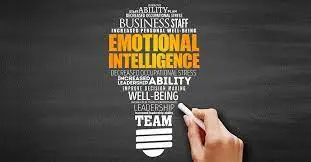
Emotional intelligence (EI) plays a critical role in sales because it helps sales professionals understand their clients’ emotions, build rapport, and tailor their approach to meet their clients’ needs. Salespeople with high EI can read their clients’ emotional states, communicate effectively, and develop deeper relationships with their clients.
How to develop Emotional Intelligence
Here are some ways to develop emotional intelligence in sales:
Develop self-awareness
Salespeople who are self-aware are better equipped to manage their own emotions and recognize the impact their behavior has on their clients. To develop self-awareness, salespeople should:
- Reflect on their own emotional triggers and how they can affect their behavior in sales situations. For example, a salesperson may become frustrated or angry when a potential client is hesitant to make a decision.
- Identify their strengths and weaknesses, and work on improving areas that need development. For example, a salesperson may recognize that they have a tendency to talk too much and not listen enough, and work on active listening skills.
Practice empathy
Empathy is the ability to understand and share the feelings of others. In sales, empathy is critical for building rapport and understanding the needs and concerns of potential clients. Salespeople can develop empathy by:
- Actively listening to clients and trying to understand their perspective. For example, a salesperson may ask open-ended questions to get more information about a potential client’s business needs, and show that they are genuinely interested in finding a solution that meets those needs.
- Using language that shows they understand the client’s situation. For example, a salesperson may say something like, “I can understand why you might be hesitant to invest in a new software system. It’s a big decision and you want to make sure you’re getting the right solution for your business.”
Communicate effectively
Effective communication is key to building trust and establishing a connection with potential clients. Salespeople can improve their communication skills by:
- Paying attention to their tone of voice, body language, and facial expressions. For example, a salesperson may smile and make eye contact to show they are engaged in the conversation, or use a calm tone of voice to diffuse a tense situation.
- Using language that is clear, concise, and easy to understand. For example, a salesperson may avoid using technical jargon that potential clients may not be familiar with, and instead use language that is tailored to their audience.
Build relationships
Building strong relationships with clients is critical for long-term success in sales. Salespeople can build relationships by:
- Being genuine and authentic in their interactions with clients. For example, a salesperson may share a personal story or anecdote to establish a connection with a potential client.
- Focusing on the client’s needs and concerns, rather than just trying to close a sale. For example, a salesperson may offer advice or guidance that is not directly related to their product or service, but still helps the client solve a business problem.
Practice emotional regulation
Emotional regulation is the ability to manage one’s own emotions in a way that is constructive and beneficial to the sales process. Salespeople can practice emotional regulation by:
- Recognizing their own emotional states and taking steps to manage them. For example, a salesperson who is feeling frustrated or stressed may take a break or practice deep breathing exercises to calm themselves down.
- Responding to potential clients in a way that is appropriate and professional, even when faced with difficult or challenging situations. For example, a salesperson may respond to a client who is angry or upset in a calm and understanding manner, rather than becoming defensive or argumentative.
In summary, emotional intelligence is critical for success in sales. By developing self-awareness, empathy, effective communication skills, relationship-building skills, and emotional regulation, salespeople can establish a connection with potential clients, build trust, and ultimately close more deals. Are you ready to train your team to sell better? Reach out.



